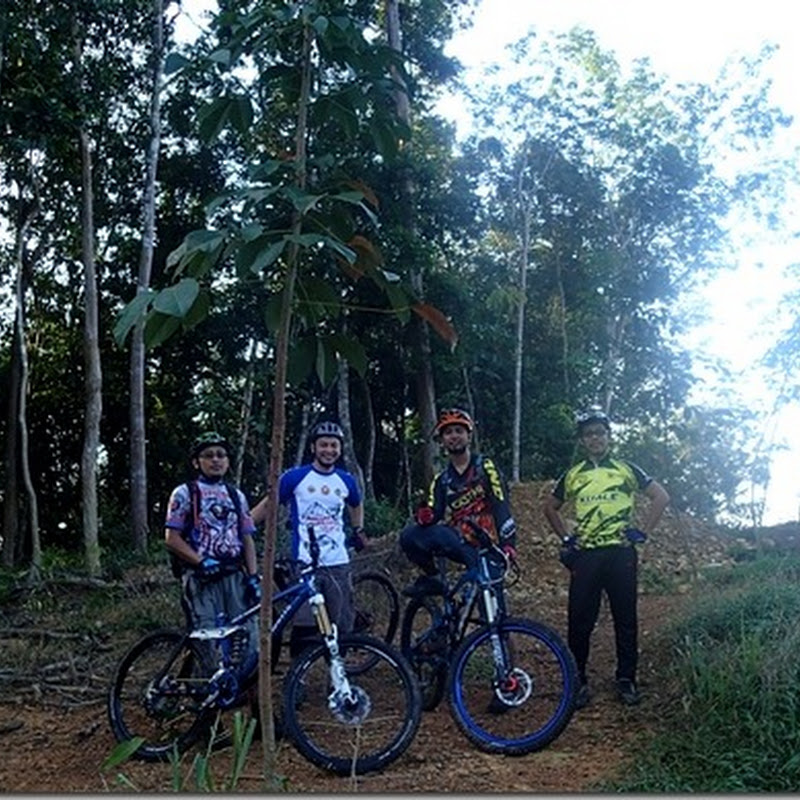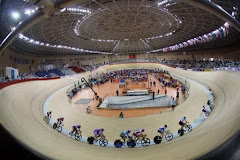
All that meant more to the sport than being indicted as one of the 19 core sports and reason to believe that more could come as the sport is one of three to receive full government backing towards the 2012 London Olympics. Azizul spoke the loudest for Malaysian cycling this year in repeating his Asian Championships keirin gold medal in Bangkok last year, then adding the 200m sprint gold to that in this year’s championships in Nara, Japan in April.
That made it three years in a row that
That wasn’t all Azizul had to show.
At just 20-yearsold, he qualfied as part of
And the Malaysians showed they weren’t in Beijing just to make up the numbers, particularly Azizul, who only just missed out on a place in the keirin final, but then put on an impressive show against the goliath of world sprinting — Britain’s Chris Hoy — in the 200m sprint quarterfinals.
The team sprint trio of Azizul, Josiah and Rizal too impressed in Beijing with a 44.525s national record at the Laoshan Velodrome, months after they wrote the earlier national mark of 45.511s at the same venue.
Clearly, the national sprints squad programme under Australian coach John Beasley at their
Not much could be said of the endurance programme under Ng Joo Ngan, who have failed miserably to produce any significant results, apart from at the Sea Games, over the past eight years at least.
The National Sports Council’s (NSC) move to take on Beasley as a director of the entire cycling programme, overseeing not just the sprints squad, but the endurance and equally struggling road programmes as well could soon see an all-around change in fortunes.
On the road, Malaysians started the UCI Asia Tour season with a bang.
More so the swashbuckling Le Tua Cycling Team, who conquered all by taking the overall win through Indonesian rider Tonton Susanto and the points classification through Anuar Manan in the Jelajah Malaysia in January, then came within a whisker of creating history in Le Tour de Langkawi (LTdL) a month later.
Le Tua’s Anuar swept three stage wins en route to his second successive points classification win the the Jelajah Malaysia, before almost taking an historic first ever Malaysian stage win in LTdL, when he finished second behind Seoul City’s Lee Won Jae in Stage Three of the race.
Anuar was to add the points classification in the Tour de East Java in
But Anuar wasn’t the only one who moved a notch further on the road.
Loh Sea Keong was another who made his mark this year, riding for the China-registered Trek-Marco Polo team. After years of working as a ‘domestique’, serving the bigger riders in the team, Sea Keong registered his first ever international stage win in the Tour of Thailand in October.
Nor Rizuan Zainal and the seasoned Ahmad Fallanie Ali both also got their names on the list of international winners with stage wins in the Tour of Indonesia, while Akmal Amrun made his personal history by winning the final stage of the Tour of Hong Kong-Shanghai.
After a long wait, the first ever UCI-recognised national road championships was also held this year, with Police’s Fauzan Ahmad Lutfi taking the honour of being the country’s first ever national champion.
Locally, the big bang was in the Malaysia Games in July, where hosts Terengganu, for long the cycling hotbed of the country, stamped their mark by taking a whopping nine gold medals.
Organisationally, LTdL’s 13th edition went about with fewer complications than previously, but the government’s support seems to be dwindling by the year and the Malaysian National Cycling Federation (MNCF) must now look to operate the race independently.
Just like Jelajah
On the development front, the lack of really strong juniors must be ringing some alarm bells.
When in the earlier part of the decade, the juniors were stringing together results in the Asian Junior Championsvhips, this year they only delivered two bronze medals.
But the SportExcel National Junior Circuit also saw rapid growth, particularly in its track events, which has grown to now feature more than 100 riders in every round.
The core sports programme has also allowed cycling to really be expanded, with 14 centres of excellence and three regional back-up centres now in full flight.
All that remains now is for the Education Ministry to do its part and include cycling under the Malaysian Schools Sports Council (MSSM) calendar, something which has been overlooked for far too long.
But having said that, from the grassroots right up to the country’s biggest race — LTdL — it goes to show that the sport is far from independent, as all programmes run are funded by the government, bar the SportExcel National Junior Circuit.
Even at state level, programmes run by the respective bodies are too heavily reliant on state government funds and depend solely on injections under the biennial Malaysia Games programmes to get by.
And the MNCF itself is far from showing any innovation towards promoting the sport as an industry or moving towards commercialisation, something that grows ever more vital in this day and age.
But all that lacked in 2008 must surely have been made up for by the cyclists on the international stage. The promise of not just Azizul or Rizal, but a string of super promising riders coming of age in the next few years is very evident.
It is just a matter of improving, while keeping all the groundwork that’s been laid down together.


















































Tiada ulasan:
Catat Ulasan